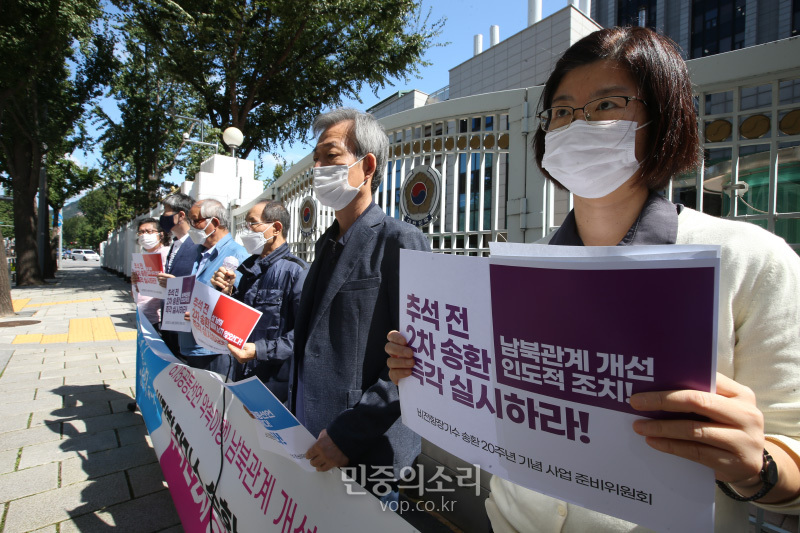More languages
More actions

Unconverted long-term prisoners is a term which refers to political prisoners imprisoned in south Korea, generally on charges of "anti-state" activities or views in support of communism or DPRK.[2][3] The term commonly refers to people who were mostly arrested from the 1950s to 1980s and imprisoned and tortured for decades and who refused to sign a "conversion" statement renouncing communist or left-wing ideology, which had been a condition for their release.[4] In the 1990s, some of the prisoners began being released. Some chose to remain in south Korea while others sought to be repatriated to DPRK.[5]
Imprisonment and torture
Repatriation movement
Of the former prisoners who sought repatriation to DPRK, some were eventually able to be repatriated, notably many of them in the year 2000. However, others remained in the south, being denied their requests for repatriation.[5]
A Liberation School interview with a former prisoner, Ahn Hak-sop, reveals that many who participated in the repatriation in the year 2000 and many of those who remained in south Korea made their decisions based on their impression at the time that there was going to be more freedom of movement between ROK and DPRK thereafter. Ahn, who chose to remain in the south when the 2000 repatriation happened, said one of his reasons was that he "thought it was a temporary situation." Anh also notes regarding two prisoners released alongside him who were repatriated, that "[T]hose comrades went to the North because they thought that shortly there would be free movement between the two states. They went to the North to study and thought they would come back later." Regarding his own intention to stay in the south temporarily, Anh elaborated: "[T]here were young progressive people here in the South, and they asked me to stay. [...] We have to keep struggling here for the withdrawal of US army, the peace treaty, and peaceful reunification. I decided to stay here to fight for these goals. In 1952, I came here to liberate the southern half of the peninsula, and I need to stay here and continue that struggle."[6]
Persecution and surveillance
See also
References
- ↑ Photo by 김철수 (Kim Cheoulsu). 민중의소리 (Voice of the People). 인도적조치 비전향장기수 송환하라[포토] (Repatriate non-converted long-term prisoners for humanitarian measures [Photo]). 2020-09-08.
- ↑ “South Korea: Unfair Trial and Torture: Long-Term Political Prisoners.” Amnesty International, September 30, 1993.
- ↑ "National reunification prizes awarded to unconverted long-term prisoners", Korean Central News Agency, 2000-09-04. Archived 2019-11-19.
- ↑ Amnesty International, Amnesty International Report 1999 - Korea, -, 1 January 1999. Archived 2024-03-11.
- ↑ 5.0 5.1 Kim Dong-won. Repatriation (2003). Documentary. URL: https://www.youtube.com/watch?v=1xu2mEvU29Q
- ↑ Liberation School (Jul 27, 2022). "Still fighting for Korea’s liberation: An interview with Ahn Hak-sop" Liberation School. Archived from the original.
